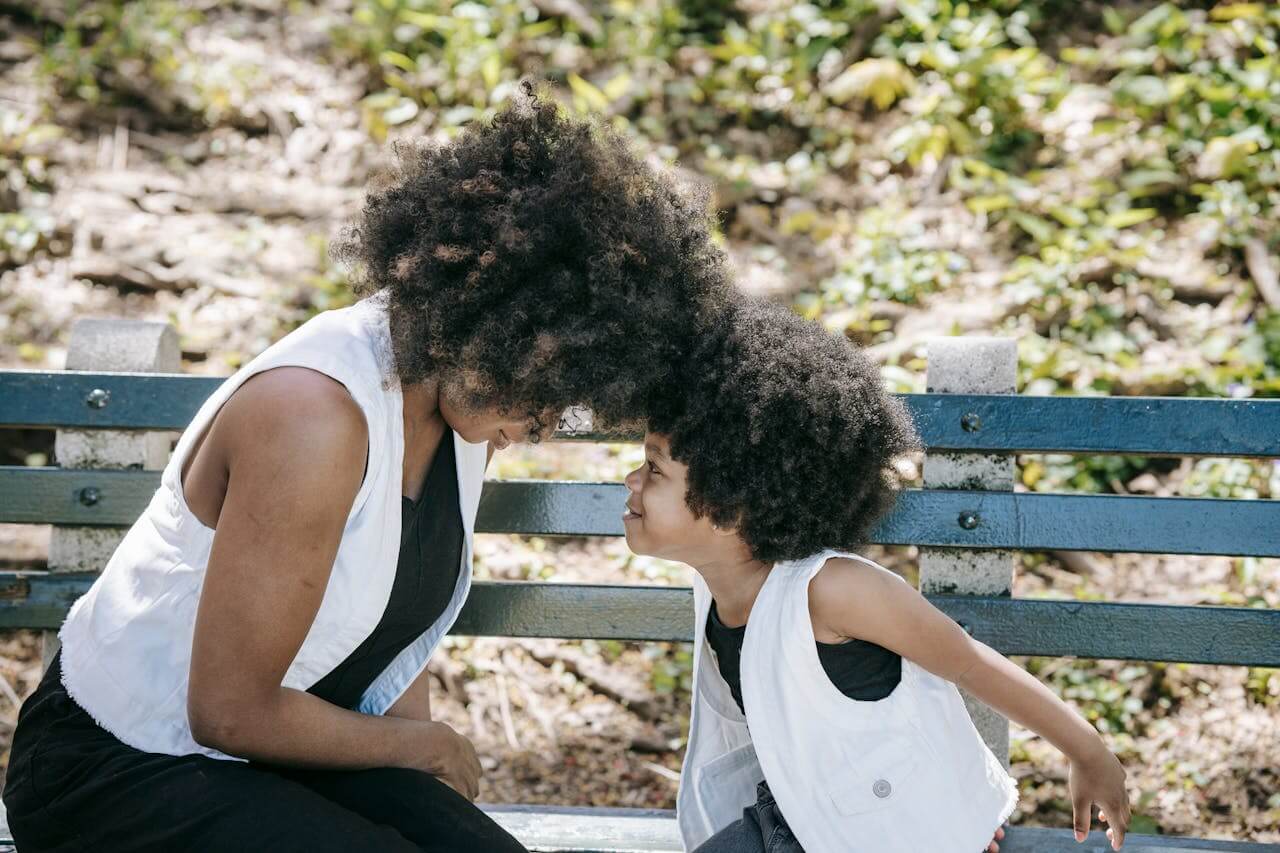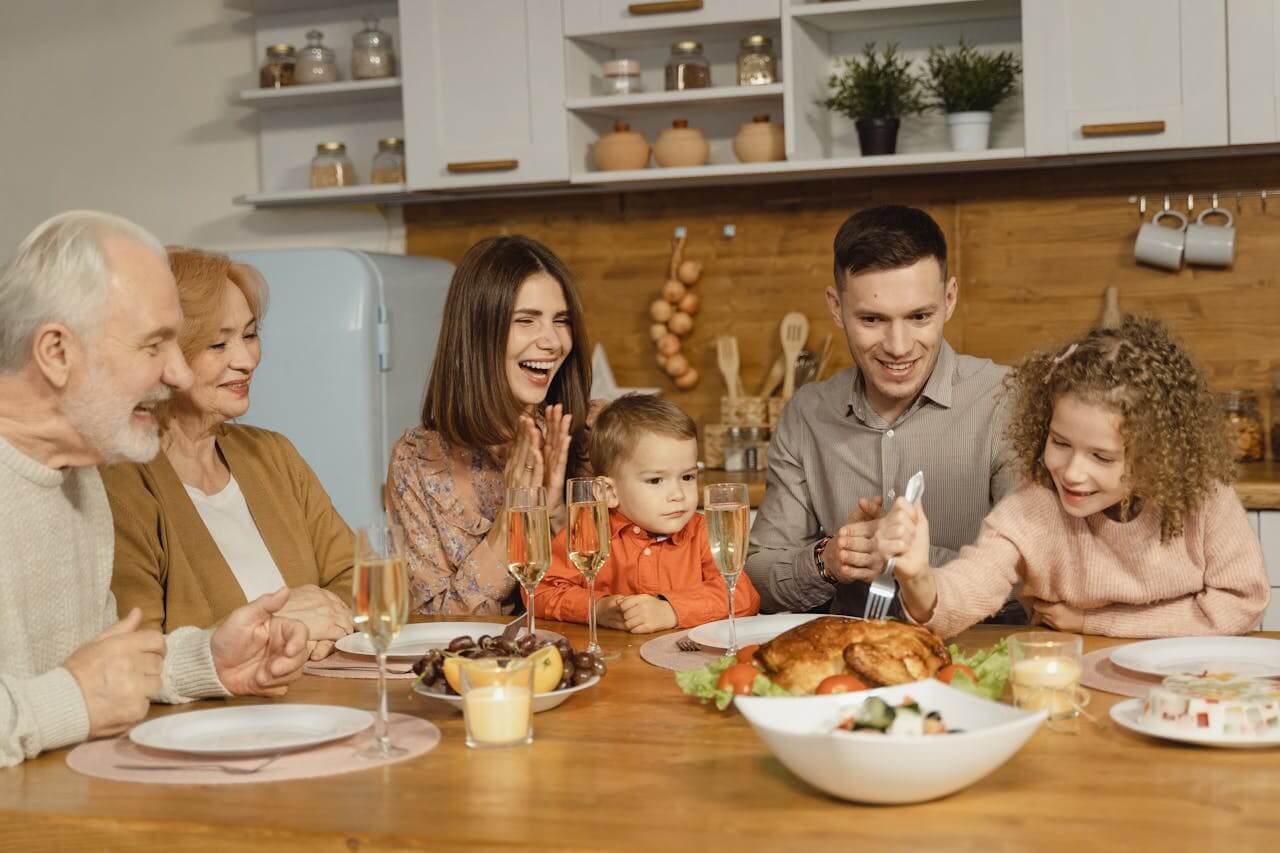Love and Happiness: How to Improve Relationships for a Happier Life
Joe had always been the type of person who prided himself on his independence. Working long hours at his tech startup, he convinced himself that success meant grinding alone. But as he sat in his empty apartment one Friday evening, scrolling through social media and seeing friends sharing joyful moments together, something clicked. The connection between love and happiness suddenly became undeniable. The question “can love make you happy?” felt more urgent than ever, followed quickly by “can a relationship make you happy?” That weekend, instead of diving into spreadsheets, Joe decided to call his sister, whom he hadn’t spoken to in months. Their two-hour conversation filled him with more energy than any caffeine ever could. This simple act of reconnection sparked Joe’s journey toward understanding that love and happiness aren’t just connected – they’re the foundation of true fulfillment.
This week, we’ll look at the important relationship between love and happiness, learn how to improve relationships, discover how to make friends, and most importantly, uncover how to be happy through love.

The Life-Changing Power of Love and Connection
We human beings are social creatures, wired for connection from the moment we take our first breath. In fact, having a strong social network and good relationships is one of the greatest predictors of long-term happiness levels. The research is crystal clear: strong social connections can reduce loneliness, anxiety, depression, stress, and worries while decreasing the risk of obesity, high blood pressure, and smoking. Even more remarkably, these connections can actually increase life expectancy.
When it comes to happiness, the power of love, a touch, a hug, and any kind of intimacy is undeniable. Scientists have discovered that after a child’s birth, the mother’s loving physical touch becomes the key factor in developing the child’s brain properly. This touch improves cognition and builds resilience to stress, proving that the relationship between love and happiness literally shapes our neural pathways from day one.
The question “Can love make you happy?” has a resounding scientific answer: absolutely. Love doesn’t just feel good; it transforms our biology at the cellular level. Understanding the profound connection between love and happiness becomes essential when we realize that relationships literally rewire our brains for greater well-being.

Love as the Ultimate Happiness Booster
Happiness is actually love – the love of life, the love of anything you enjoy doing, the love of anything that makes your world a better place. The intricate relationship between love and happiness becomes clear when we examine how different types of love affect our well-being. Any kind of love, whether toward ourselves, partners, parents, children, siblings, friends, pets, nature, or even non-living things like our hobbies, releases positive hormones and makes us both happy and healthy.
Think about the last time you felt truly happy. Chances are, that moment involved some form of love – perhaps laughing with friends, hugging a family member, or even losing yourself in a passion project. These experiences demonstrate how to be happy through authentic connection, activating our body’s natural happiness chemistry and flooding us with feel-good hormones that create lasting well-being.
Love provides emotional support, understanding, and that irreplaceable sense of belonging that every human craves. When we feel loved and accepted, our nervous system relaxes, our stress hormones decrease, and our natural healing mechanisms activate. This isn’t just touchy-feely psychology – it’s hard science showing us exactly how to be happy through genuine connection. The question “Can love make you happy?” becomes rhetorical when we experience these profound physiological changes firsthand.

The Science Behind Love’s Magic
According to Dr. Bruce Lipton’s groundbreaking research, we typically operate from negative subconscious programs for 95% of our day. However, this percentage changes dramatically when we’re in love. When exploring “Can love make you happy?” from a scientific perspective, we discover that love literally alters our consciousness. When we fall in love, everything seems great, and life suddenly appears beautiful. But why does everything feel so magical when nothing external has actually changed?
The answer lies in consciousness. When we’re in love, we stay mindful, present, and conscious. We keep our hands on the wheel, driving toward our desires instead of allowing the negative subconscious to steer us away from what we want. We remain in the now, and understanding how to be happy starts with recognizing that it’s easiest to find true happiness in the present moment.
This “honeymoon phase” represents the period of manifestation, where wishes and desires come alive. The secret? You can create this wish-fulfilling state by staying mindful and not wandering into negative thoughts. When we’re in love, we release positive hormones like oxytocin and growth hormone that literally boost the growth and health of our cells. This demonstrates the powerful synergy between love and happiness at the cellular level.
As soon as we lose ourselves in uncontrolled thoughts again, we let the negative subconscious create our future. The key is learning how to maintain that loving, present state beyond the initial honeymoon period.

This Week’s Love Challenge
This week, focus on the people you love. Take some time to connect with your loved ones in meaningful ways. Spend quality time with your family, hug a friend, reconnect with someone you haven’t spoken to in a while, or write a heartfelt gratitude note to someone who has enriched your life.
Show them your affection and get ready to receive love in return. Create a list of people who make you happy. This simple exercise will help you recognize the love network that already surrounds you. Remember, exploring “Can a relationship make you happy?” depends entirely on how intentionally you nurture those connections. The interplay between love and happiness becomes most apparent when we actively invest in our relationships rather than passively hoping they’ll flourish.
Small acts of love create ripple effects that extend far beyond the initial gesture. When you reach out with genuine care, you’re not just brightening someone else’s day – you’re actively rewiring your own brain for happiness. This demonstrates exactly how to be happy through conscious relationship building.
Love: Exercises
To truly embrace love and happiness, let’s put these ideas into practice with two concise exercises.
- Define Your Roles: Take a moment to reflect on the various roles you play in your life (e.g., parent, friend, partner, sibling). For the three roles you dedicate the most time to, consider if you’re satisfied with how you’re embodying them. If not, challenge yourself to redefine the meaning of these roles for you, rather than relying on external expectations, or try acting differently within them. Acknowledge your progress as you experience relief from this shift.
- Celebrate All Forms of Love: We often prioritize romantic love, but love is a vast spectrum. Identify one type of love you can celebrate today. Be it for a friend, a child, nature, art, or even life itself. Think about how you can express “I love you” to this person or thing in their “language.” For example, how would you show love to the sea or a cherished family member?

Building Stronger Relationships Through Active Engagement
When exploring how to improve relationships, one of the most powerful tools is Active Constructive Responding. In relationships, we often focus on being there when things go wrong, but it’s equally important to celebrate when things go right. How we respond to good news significantly impacts relationship quality and directly influences the answer to the question “Can a relationship make you happy?”.
Researcher Dr. Shelly Gable identified four response patterns when someone shares good news. Passive and destructive responses ignore the event entirely, becoming a “conversation hijacker.” Passive and constructive responses offer unenthusiastic congratulations before moving on, acting as a “conversation killer.” Active and destructive responses point out negatives or steal the conversation, committing “joy theft.”
However, active and constructive responses create magic. You become genuinely supportive and authentically enthusiastic. You drop what you’re doing to congratulate the person, ask follow-up questions to help them relive the experience, and celebrate together. This becomes a “joy multiplier” and exemplifies how to improve relationships through intentional engagement.
Exercise: Practice active constructive responding this week. When someone shares good news, put down your phone, make eye contact, and ask engaging questions like “How did that feel?” or “Tell me more about that moment!” This simple shift increases love, trust, and intimacy while reducing relationship conflicts. It’s a practical demonstration of how to improve relationships through conscious communication.

Family First: Your Foundation of Love
People from Blue Zones – regions with the longest-living populations – consistently put family first. They live with or near aging parents and grandparents, which prolongs both the elderly family members’ and children’s lifespans. They commit to life partners and prioritize family connections above all else, demonstrating how the bond between love and happiness extends across generations.
Strong families don’t happen by accident. They require intentional rituals and shared experiences. When considering how to improve relationships within your family unit, establish meaningful traditions like eating one meal together daily, setting up weekly dinners with extended family, taking annual vacations, and celebrating holidays meaningfully.
Create physical spaces that honor your family connections. Establish a room for quality time together, or create a family shrine showcasing photos, children’s artwork, and sentimental objects. These tangible reminders reinforce the love that binds you together and serve as daily reminders of how to be happy through family connection.
Exercise: This week, initiate one new family ritual. It might be a phone call to a distant relative, a family game night, or simply putting devices away during dinner. Small changes in family engagement can dramatically impact everyone’s happiness levels and strengthen the fundamental connection between love and happiness.
When pondering “Can a relationship make you happy?” remember that family relationships often provide our deepest sense of security and belonging. Investing in these connections pays dividends for generations.

Choosing Your Tribe Wisely
The people you surround yourself with directly influence your happiness levels. Studies show that one happy friend boosts our happiness by about 9%, while an unhappy friend lowers it by 7%. This isn’t about being superficial – it’s about recognizing that both healthy and unhealthy behaviors are contagious. Understanding how to make friends who enhance rather than diminish your well-being becomes crucial for long-term happiness.
When thinking about how to make friends and build your social circle, seek like-minded people who share your values and support healthy habits. Avoid those who consistently engage in behaviors that drain your energy: excessive complaining, resistance to new experiences, or habits that conflict with your well-being goals. This selective approach to relationships demonstrates practical wisdom about how love and happiness intersect in our social lives.
Instead, actively seek environments where you can meet people with common interests. Join clubs, volunteer organizations, or hobby groups where you can use your talents while connecting with others. These shared activities provide natural conversation starters and deeper bonding opportunities, making the process of learning how to make friends feel organic rather than forced.
Exercise: Identify three places or activities where you could meet like-minded people this month. It might be a hiking group, book club, cooking class, or volunteer organization. This week, take action on at least one. This proactive approach to learning how to make friends ensures you’re building relationships that genuinely support your happiness.
Building the right tribe takes time and intention, but the investment pays enormous dividends in terms of happiness and life satisfaction. When you consciously choose relationships that nourish your soul, you’re actively creating conditions where love and happiness can flourish.

The Healing Power of Hugs
Family therapist Virginia Satir famously said, “We need four hugs a day for survival, eight hugs a day for maintenance, and twelve hugs a day for growth.” This isn’t just feel-good advice – it’s backed by solid research showing that hugs reduce stress, fear, and pain while boosting immune function and strengthening relationships. Understanding how to be happy through physical touch reveals one of the simplest yet most powerful expressions of love and happiness.
Hugs dramatically increase oxytocin levels, the hormone responsible for bonding and happiness. They literally change our biochemistry, shifting us from fight-or-flight mode into rest and healing mode. This simple act of physical connection can lower blood pressure, reduce cortisol levels, and increase natural killer cells vital to immune function.
The beauty of hugging lies in its accessibility. You don’t need special skills, expensive equipment, or perfect timing. You just need the willingness to connect authentically with another being. This makes hugging one of the most democratic ways to experience the profound connection between love and happiness.
Exercise: Commit to giving or receiving at least four meaningful hugs daily this week. If human hugs aren’t available, hug your pet, a tree, or even a soft pillow. The key is the intention behind the embrace and the moment of connection it creates. Track how these physical connections affect your mood and energy levels throughout the week.

Intimacy and Sexual Connection
Sex represents one of the most powerful expressions of love and connection between partners. Research by Killingsworth and Gilbert found that sex is the only activity during which people don’t experience mind-wandering. And since mind-wandering significantly decreases happiness, sexual intimacy naturally creates peak happiness experiences. This research provides compelling clues for “Can love make you happy?” in its most intimate form.
Beyond pleasure, sexual activity serves crucial biological functions. It activates what Dr. Habib Sadeghi calls “Cranial Nerve Zero,” which shifts us from fight-or-flight mode into rest and healing mode. During sexual activity, our bodies release oxytocin, which decreases cortisol and increases natural killer cells essential for immune function. This demonstrates how physical expressions of love and happiness work together to optimize our health.
However, intimacy extends beyond sexual activity. His Holiness the Dalai Lama emphasizes that Western culture’s narrow definition of intimacy limits our happiness potential. True intimacy involves deep connection, respect, and mutual appreciation – qualities that can exist in various relationships when we take time to know others’ deeper nature.
Exercise: If you’re in a romantic relationship, schedule weekly intimacy time that focuses on connection rather than performance. This might include meaningful conversation, gentle touch, or simply being fully present together without distractions. For everyone, practice expanding your definition of intimacy by having one deeper-than-usual conversation this week with someone you care about.
This approach to intimacy exemplifies how to improve relationships by prioritizing emotional connection alongside physical attraction.
The Joy of Loving Animals
When you ask yourself, “Can a relationship make you happy?” you likely disregard the relationships you have with your pets. Pet ownership significantly increases happiness levels, with research showing that petting puppies has a stronger calming effect than taking Prozac and can lower high blood pressure. Animals help us feel calmer, loved, mindful, rejuvenated, useful, social, self-confident, and satisfied across all life areas. When exploring “can love make you happy?” we must include the unconditional love that animals provide.
Animals’ simplistic minds act like “little Buddhas,” offering healing presence and unconditional love. Pet owners exercise almost twice as much as non-owners, feel more successful, volunteer more for charities, and are significantly less likely to experience loneliness. This demonstrates how the relationship between love and happiness extends beyond human connections.
The companionship of animals boosts feel-good biochemicals like endorphins and oxytocin, creating natural happiness and relaxation. Their presence brings laughter to 60% of owners and provides consistent emotional support that doesn’t depend on human moods or availability. This reliability makes pets exceptional teachers in how to be happy through simple, present-moment awareness.
Exercise: If you don’t own a pet, visit an animal shelter or spend time with a friend’s pet this week. Consider volunteering at a local shelter to make these loving interactions a regular part of your routine. If you’re ready for the commitment, adopting a shelter animal can transform both your life and theirs.
Even brief interactions with animals can shift your emotional state and remind you of the simple joy found in unconditional love. This represents one of the purest forms of love and happiness available to us. But remember, owning a pet is a serious commitment; therefore, make sure to not make this decision lightly.

Your Love-Filled Path Forward
Love and happiness aren’t just connected – they’re the same energy expressed in different ways. Every act of genuine love, whether toward family, friends, partners, pets, or even yourself (read more about how to practice self-love), creates ripples of happiness that extend far beyond the initial moment. Understanding how to be happy through love requires recognizing that these aren’t separate goals but interconnected aspects of a fulfilling life.
The science is clear: investing in relationships isn’t just nice to have, it’s essential for optimal health, happiness, and longevity. When you prioritize love and connection, you’re not being soft or unrealistic – you’re making one of the smartest decisions possible for your overall well-being. The question “Can love make you happy?” has been answered definitively by decades of research: absolutely.
Remember Joe from our opening story? Six months after that phone call with his sister, he had rebuilt relationships with family, developed genuine friendships with colleagues, and met someone special through a hiking group. His business didn’t suffer – it thrived because he brought more energy, creativity, and emotional intelligence to his work. He discovered firsthand how to improve relationships while simultaneously improving every other area of his life.
The question isn’t whether you have time for love. It’s whether you can afford not to prioritize it. Every hug, every meaningful conversation, every moment of genuine connection is an investment in your happiness bank account that pays compound interest for years to come. When people ask, “Can a relationship make you happy?” Joe’s transformation provides a resounding yes.
Additional Support
If you’re looking to deepen your capacity for love and happiness, consider exploring positive psychology coaching to develop sustainable well-being practices that transform your relationships and overall life satisfaction. Professional guidance can accelerate your journey toward understanding how to make friends, how to improve relationships, and how to be happy through authentic connection.
Start today. Reach out to someone you love. The happiness you create will surprise you with its power and permanence. The beautiful dance between love and happiness awaits your participation.
Resources
The information in this article is grounded in scientific research. If you’re interested in specific studies, feel free to reach out to us.
For daily doses of joy, positivity, inspiration, and motivation, be sure to follow us on Instagram.
Za naše bralce v Sloveniji
Če vas zanima več o psihoterapiji in iskanju trajne sreče, preberite naslednje članke: Psihoterapija Obala, 5 ključev do trajne sreče in notranjega miru, Najboljši psihoterapevti v Sloveniji: Kako se hitro spopasti s stresom, Psiholog v Kopru: Kako odpraviti težave s psihoterapijo in RTT terapijo, in Psihoterapija Online: Prednosti in učinkovitost terapije na daljavo.


